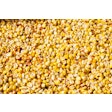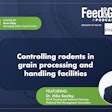
What a fabulous opportunity it is to be a basis trading grain elevator! Being price neutral allows us to work with our farmer/producers instead of against them. What a luxury we have in the grain industry that we derive our profit from the market and do not need to take it from our customers! Unfettered by a conflict of interest, we can be a trusted ally for producers whose expertise and passion more often lie in producing a crop than marketing it. I encourage you (as most of you already do) to not take this role lightly. How you interact with producers can have a large impact on both their and your bottom line.
Here are a few things to keep in mind while you consider your interaction with farmers.
Make sure your farmer customers know you are on their side
You can actually root for prices to go up so you can pay farmers more for their grain! How many industries can say that? Make sure your producers know that your margin comes from the market, not from them. You have no conflict of interest in their success, and this should be evident to them in your interaction.
Don’t be ashamed of operating profitably
Although you are rooting for the farmers’ success, it is disingenuous to claim indifference to your own bottom line. Of course your goal is to be profitable. Would they want to do business with someone who was not? That is not a formula for long-term success. During my time at the country elevator, I would tell farmers that I wouldn’t be able to take care of them next year if I didn’t make money this year. You can both make money without taking away from each other.
Help them make marketing a business decision
A farmer without livestock has NO use for grain. That may sound ridiculous, but what he needs is cash. If, in our interactions, we are doing anything other than helping him turn his grain into cash at a profit as soon as possible with as little cost as reasonable, we are not helping him. Farming is a profession that invokes passion like no other. This is great in that it makes for a dedicated workforce, but it also leads to a misplaced emotional attachment to grain. Imagine another industry where a company would choose not to profitably sell their product but rather wait in hopes that they will sell for more later with no guarantees of such and all the while incurring interest costs or even being charged to store their product in someone else’s facility. Encourage them to keep the passion in farming, but make marketing a business decision.
Put BASIS in context
How to discuss basis with farmers is a much debated topic. Opinions range from thinking it should be a secret to believing we should help farmers be basis traders. As with many debated topics, I don’t feel either extreme makes much sense. Merchandisers understand that basis is a reflection of local grain movement and is determined by many local factors, including the current local supply and demand situation and what grain can be resold for. Basis is not the elevator’s cut or some form of calculation of the elevator’s operating costs. There is nothing wrong with an elevator being transparent about basis and the fact that we attempt to profit from its fluctuation, but it is important to help farmers focus on net cash price as opposed to fixating on basis. Unless truly hedged, a farmer’s primary risk is in futures price fluctuation. Most markets will see less basis movement in a year than futures may move in one day. Too often when a producer becomes focused on basis, they miss out on opportunity. Point out that gaining a nickel in basis does them no good if they give up a quarter in cash price. Make sure that basis’s minor influence on the farmer’s bottom line is kept in perspective.
Promote simplicity and profit
When did people start equating simple with bad? There are so many marketing strategies out there that too often farmers find themselves in analysis paralysis trying to figure out a way to sneak a penny or two out of some nuance in the market. These “strategies” nearly always come with out-of-pocket cost and/or significant (sometimes hidden) risk making them hard to break even when comparing to simple forward contracting. If you are promoting these contracts, are you really helping the farmer? Turning a profit is hard enough without letting marketing grain add to their costs. Alternatively, determining when they want (or need) to move their grain and proactively seeking opportunities to make profitable sales is free!
Encourage forward sales
Waiting to sell until it is time to move grain (or longer) is a poorly conceived reactive strategy. It’s not that it will never work out to sell in the spot market, but year in and year out, a proactive marketer will come out ahead and save himself marketing costs. Futures markets trade for more than two years prior to harvest and nearly always offer opportunities to sell profitably. Farmers can use all of this time to market grain with no additional fees, yet they often forego these opportunities and then pay for the right to take a few more months to sell after harvest. Harvest is not when marketing should start for a crop, but rather when it should end. Help your farmers plan ahead and use the time that is free.
Help your farmers and you can reap the benefits
So why is it important to help our farmers? The most obvious reason to be a trusted ally of the farmer is repeat business. Buying a farmer’s grain one time but leaving a bad taste in their mouth is a losing proposition. We are in this for the long haul and a loyal customer base is invaluable. A less obvious benefit is that promoting proactive grain marketing for farmers also helps your merchandising. The sooner you can get grain bought, the more opportunity you have to merchandise it.
Make harvest ownership a priority
The biggest opportunity for an elevator in a carry market is typically to take ownership of grain at harvest. As previously stated, it is in the farmers’ best interest to turn grain into cash sooner rather than later. Once grain is harvested, the farmers no longer have time to market the grain without taking on cost or risk or both. Grain ownership passing to the elevator at harvest is a win/win, yet year after year elevators come out of harvest with bins full of grain on storage or deferred price contracts and farmers are left with no cash and paying interest on operating loans with nothing guaranteed other than fees to be paid. Nobody wins in this scenario. Make it a priority to help farmers get their grain profitably marketed ahead of harvest and everyone benefits.
Helping farmers successfully market their grain at a profit is one of the country elevator’s most important jobs. Doing so creates loyal customers and sets you up for profitable merchandising opportunities. Make sure you are encouraging marketing habits that will set both your producers and you up for success. ❚

Tracy Henkel is a grain merchandising specialist with White Commercial Corporation. He works with the team at WCC to help grain elevators across North America maximize their merchandising opportunities and strengthen their relationship with producers through profit-based grain origination. Tracy resides in Fennimore, WI, with his wife and two children. He can be reached at [email protected] or follow him on twitter @thenkelWCC.


















